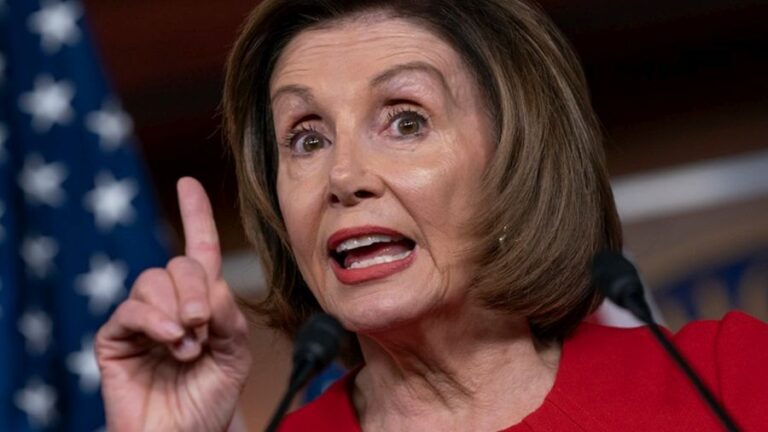China’s Reported Pause of Russian Oil Imports Ahead of the West’s Price Cap Is Revealing
If true, then this development would be very revealing in the context of China exploring the parameters of a New Détente with the US, and it could also influence the further strengthening of the Russian-Indian Strategic Partnership if Delhi compensates for Beijing’s possibly reduced consumption of Moscow’s oil.
Bloomberg reported on Tuesday that some Chinese buyers have allegedly paused their import of Russian oil ahead of the West’s looming price cap on that resource, which if true would be very revealing in the context of that country exploring the parameters of a New Détente with the US. According to them, those buyers supposedly want to see if they can get better deals from Moscow after the price cap enters into effect, thus signaling opportunistic and not necessarily unfriendly intentions.
Nevertheless, there could be unexpected consequences connected to that reported move, namely with respect to Chinese-American and Russian-Indian relations. The interplay between those four countries and especially the two aforementioned pairs will most powerfully shape International Relations at this moment in the global systemic transition. Absent Chinese-Indian coordination, reduced consumption of Russian oil from the first-mentioned could be compensated by increased consumption from the second.
India already scaled up its purchase of discounted Russian oil by a whopping fifty times just several months after Moscow’s special operation and the unprecedented sanctions that the US-led West’s Golden Billion imposed in response. Russia is now India’s top oil and fertilizer supplier, reliably exporting these pivotal commodities to that rapidly rising Great Power and thus further accelerating its ascent as a globally significant player. In the process, Russia also became India’s fifth largest trade partner.
There’s no doubt that their mutually beneficial economic relations will continue and comprehensively expand into new domains with time, thus meaning that one can predict that India will ramp up its purchases of Russian oil in the event that Chinese buyers remain skittish for opportunistic reasons. That dynamic will in turn solidify the new economically driven basis of their strategic partnership and result in the formation of an enduring energy axis between them upon which to further build their relations.
China, meanwhile, could consider returning to the terms connected to phase one of the Trump-era trade agreement to scale up its own purchase of American oil either as a goodwill gesture for taking talks on the New Détente to their next level or afterwards upon its clinching as a reward to the US. In any case, there’s a high chance that energy will play a major role in the pragmatic balance of interests that both superpowers are actively trying to hammer out.
This is important to pay attention to since it could reveal some insight about the future of the Russian-Chinese Strategic Partnership. In the event that everything unfolds as forecast above or at least somewhat aligns with that scenario, then their energy ties will remain stable but Moscow wouldn’t be able to take for granted that Beijing might continue scaling up its related consumption. Rather, the People’s Republic will continue diversifying its suppliers, including through new purchases from the US.
That could compel the Kremlin to continue exporting oil at below-market rates, though of course above those that will be stipulated by the West’s price cap. In practice, this means that India will become Russia’s most important buyer, followed by comparatively medium- and smaller-sized countries across the Global South. India’s newfound role as Russia’s largest and most reliable commodities partner is mutually beneficial since it’ll further accelerate the first’s rise while clarifying the second’s finances.
This South Asian Great Power could therefore take for granted that its Eurasian counterpart will consistently supply it with the discounted fertilizer and fuel that its economy needs to continue recovering from the cascading systemic crises that began in 2020 with COVID and climaxed with the related consequences unleashed by the Ukrainian Conflict. As for Russia, it’ll be much easier to plan its finances across the next few years if it can assume reliable Indian imports of these same commodities.
As for the Chinese-American interplay among these four key players in the global systemic transition, the possibly emerging trend of reinvigorated energy ties between them would also be mutually beneficial with respect to providing the goodwill basis upon which to “normalize” their relations or maintain that outcome after clinching a New Détente. It wouldn’t be at Russia’s expense either since the present piece argues that India would compensate for any reduction in Chinese consumption.
The strategic consequence of these energy-related dynamics would thus strengthen each respective axis, both the Russian-Indian one as well as the Chinese-American axis, the first of which is characterized by complete trust while the second will always remain beset with mutual suspicions. Of course, China might not retain its reported pause in Russian oil imports for long and could always snap back to its prior level of consumption, but not doing so wouldn’t be problematic for bilateral relations as was explained.







